China proxy Solomon Islands pushes Taiwan ban at Pacific Islands Forum
Solomon Islands will push to have Taiwan stripped of its status as an observer at the Pacific Islands Forum in Tonga this week, as China looks to assert its influence over the region’s premier diplomatic grouping.
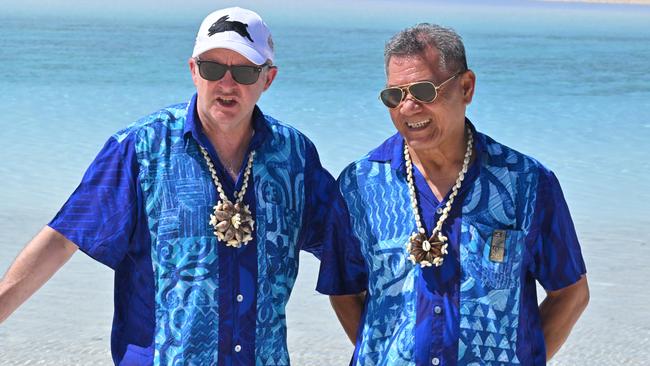
You can now listen to The Australian's articles. Give us your feedback.
Solomon Islands will push to have Taiwan stripped of its status as an observer at the Pacific Islands Forum in Tonga this week, as China looks to assert its influence over the region’s premier diplomatic grouping.
Anthony Albanese will travel to Tongan capital Nuku’alofa on Tuesday, where regional leaders are expected to endorse a New Australia-backed plan for a region-wide police response force to deal with natural disasters and security flare-ups.
The “Pacific family” policing deal is a repudiation of China’s 2022 attempt to strike its own multilateral security agreement with forum members, prompting Beijing to redouble its efforts to co-opt individual island states.
China will push back through its closest regional partner, the Solomons, which flagged at a meeting of Pacific foreign ministers this month that it would propose a motion this week challenging Taiwan’s ability to engage with the 18-member forum.
Solomon Islands’ permanent secretary for foreign affairs Collin Beck told forum officials of the plan, while claiming Pacific countries had been “steamrolled” on the new policing agreement.
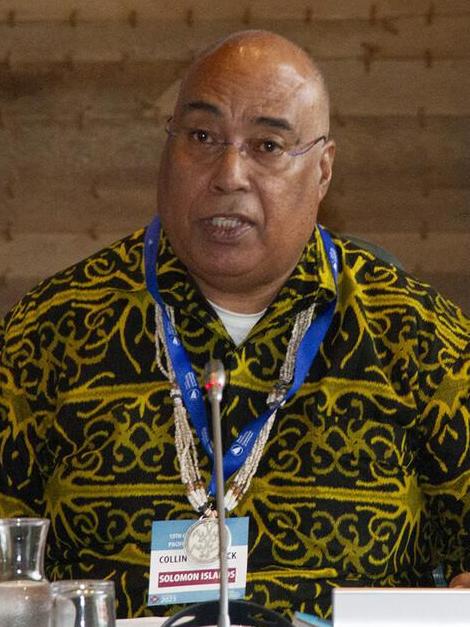
A senior Pacific diplomat told The Australian that Honiara was working on Beijing’s behalf to try to bar Taiwan from participating in the forum’s 2025 meeting, to be held in Solomon Islands’ capital.
“China is heavily lobbying all member countries on this. I would not be surprised if it is accepted,” the source said.
Another high-level source said Honiara was acting on “clear tasking from China” but it was unclear whether the push would be successful as it could be seen as a threat to Pacific solidarity.
The Albanese government will resist any move to change Taiwan’s status, after green-lighting a Senate motion last week condemning China for its attempts to exclude the self-governed territory from international forums.
“Australia values our ongoing co-ordination with other development partners in the Pacific, including Taiwan, to maximise programs that respond to Pacific priorities,” a Department of Foreign Affairs and Trade spokeswoman said.
Taiwan, which has formal diplomatic relations with Tuvalu, the Marshall Islands and Palau, is currently a forum “development partner” – the lowest status of PIF partners.
China and the US are forum “dialogue partners”, enabling them to address a special session of forum leaders.
The Lowy Institute’s Pacific Islands program director, Mihai Sora, said China, which has a history of throwing its weight around at regional forums, was determined to use every opportunity to choke off Taiwan’s international engagement.
“Keeping Taiwan out of as many dialogue spaces during the PIF meeting would be an advantage for China, as they see it,” he said.
“They can get very assertive at these meetings. It can be quite awkward.”
Mr Sora was referring to a 2018 clash at the Pacific Island Forum in Nauru when China’s representative stormed out amid a diplomatic dispute with host leader Baron Waqa, who is now the forum’s secretary-general.
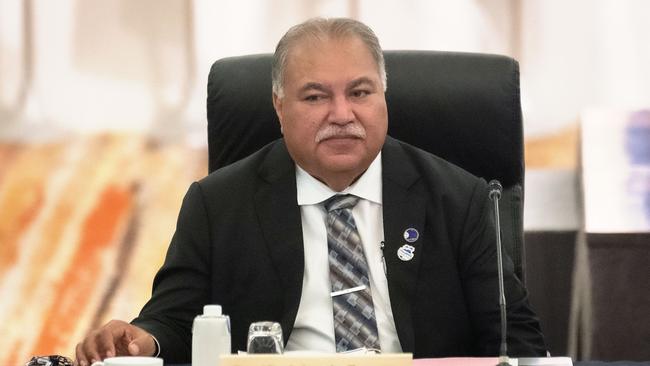
Mr Waqa said recently that he hoped China was prepared to engage with PIF members in a “genuine and constructive way”, including those that supported Taiwan.
“These (countries) are, even though small, they’re sovereign. They’re fully independent. And they align themselves with Taiwan,” he said.
“So we will make sure that the interests of our members are well protected.”
Taiwan’s Deputy Foreign Minister, Tien Chung-kwang, on Sunday said he would attend the forum this week, vowing to strengthen ties with the territory’s regional partners and other like-minded countries.
The Biden administration is sending Deputy Secretary of State and noted China hawk Kurt Campbell to address the forum, as Washington moves to strengthen its engagement with Pacific nations.
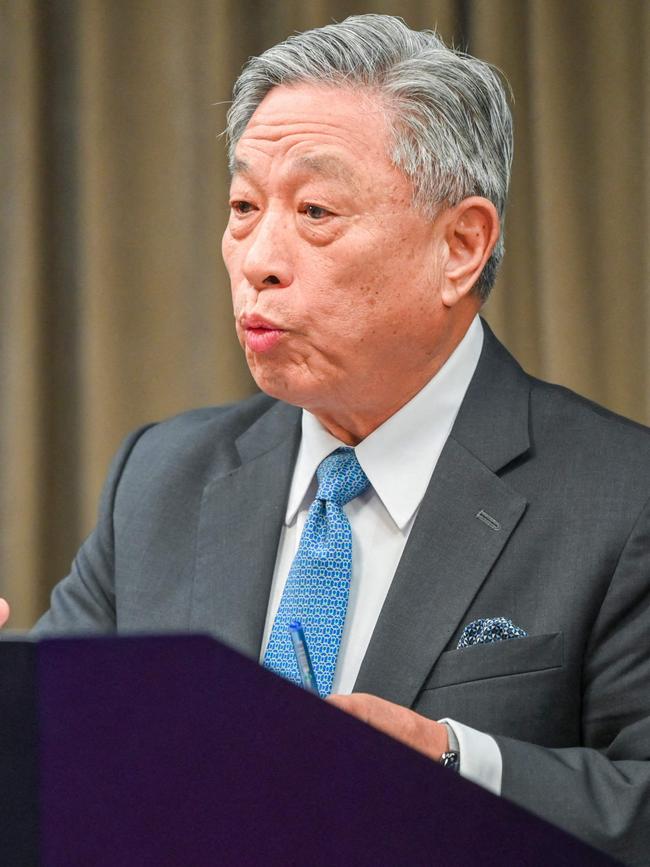
Australia and the US are one on the need to work closely with forum members, recognising the “centrality” of the grouping to the region’s future in recent AUSMIN talks in Washington.
China, which is set to be represented in Tonga by its Pacific Islands special envoy Qian Bo, struck a controversial security agreement with Honiara in April 2022, before trying unsuccessfully to use the pact as a template for a deal with 10 Pacific Island nations.
Australia has countered with a new Pacific Policing Initiative that’s set to gain acceptance by forum members this week, despite any opposition from Honiara.
Tonga Prime Minister Siaosi Sovaleni has seized on the initiative, which would see Pacific law enforcement members trained in Brisbane and Port Moresby, and a new regional police deployment force created to support humanitarian operations or outbreaks of civil disorder.
One source said the proposed force’s first operational deployment could be to support the Commonwealth Heads of Government Meeting in Samoa in October.
Climate change is set to take centre stage at the forum, with UN secretary-general Antonio Guterres set to travel to Tonga for the meeting to demand fresh efforts by the world’s biggest carbon emitters to phase out fossil fuels.
“The fate of the Pacific depends on limiting the rise in global temperature to 1.5C,” Mr Guterres told reporters in Samoa on Friday.
“This region, the Pacific, contributes 0.02 per cent of global emissions.
“Yet you are on the frontlines of the climate crisis, dealing with extreme weather events from raging tropical cyclones to record ocean heatwaves,” Mr Guterres said.
The political crisis in New Caledonia is also set to be discussed, amid sympathy among forum members for the French territory’s pro-independence movement.
Fiji’s Prime Minister Sitiveni Rabuka warned in June that the region was facing a “polycrisis” in which climate change, human security, transnational crime, and geopolitical competition were reinforcing and exacerbating one another.



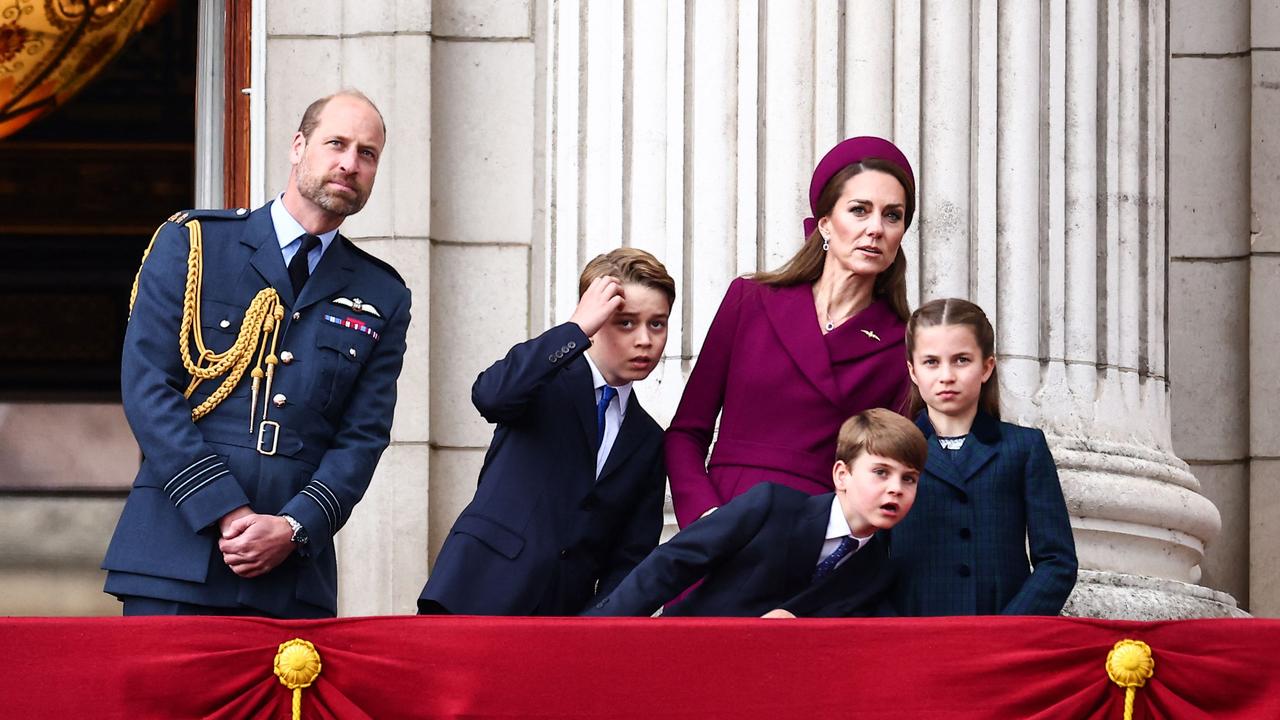
To join the conversation, please log in. Don't have an account? Register
Join the conversation, you are commenting as Logout